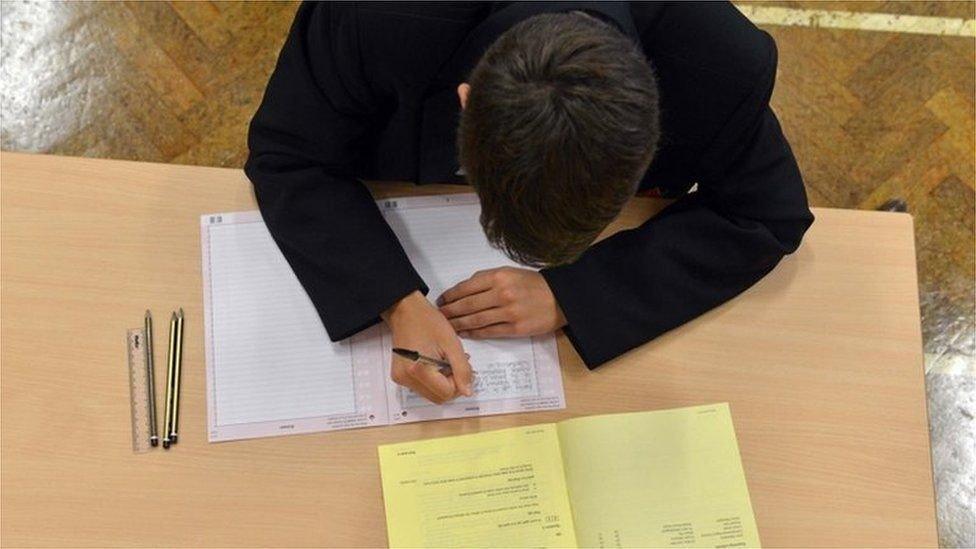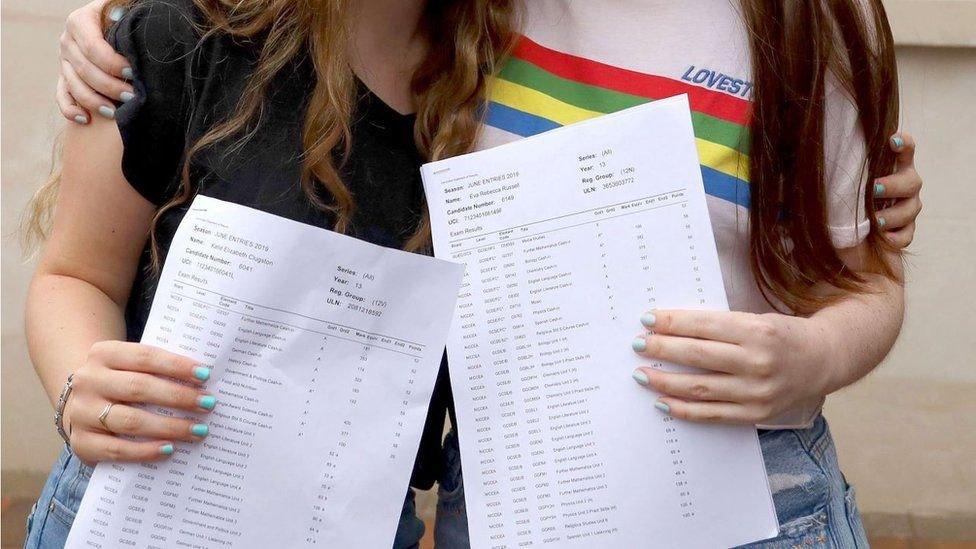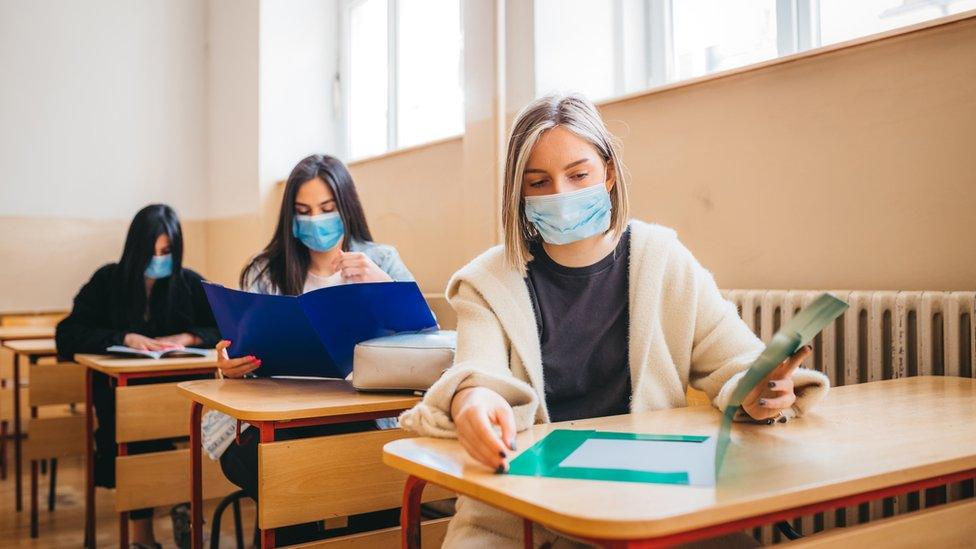Teachers told to report 'improper pressure' over exam grades
- Published

NI Exam Board CCEA issued the guidance to school and college principals
Teachers must report any "improper pressure" from parents or pupils seeking to influence GCSE, AS or A-level grades.
They have also been told to make a "conscious effort" to avoid bias in awarding pupils their grades.
That is according to guidance to school and college principals from the Northern Ireland Exams Board, CCEA.
As summer exams were cancelled for a second year, schools will calculate exam grades to be awarded to pupils.
Schools will be expected to use a range of evidence and also moderate and compare pupils' grades.
CCEA will then review how schools have awarded results to "ensure fairness and consistency".
But there will not be a return to the kind of statistical process used by CCEA which proved controversial in 2020.
CCEA has now given more details to school and college principals about how their staff should award pupils results.
"There may be instances where schools and colleges or teachers are put under improper pressure from a student or their parent/guardian to influence the decision-making on a grade," the guidance said.
"Any improper pressure must be reported to CCEA, and we may investigate this as potential malpractice."
Schools and colleges have also been told that a pupil's grade "must be an objective decision based on evidence of a student's knowledge, understanding and skills in relation to the subject".
"A conscious effort must be made to avoid bias," CCEA said.

Teachers have been told to make a "conscious effort" to avoid bias in awarding grades
Schools are told to base grades on a pupil's "individual academic performance rather than positive or challenging personal circumstances, character, behaviour, appearance, socio-economic background, or performance of their siblings".
The CCEA guidance also sets out the evidence a school or college can use to decide results.
That evidence can include mock exams, results of class tests, class work or performance in past exam papers.
But CCEA is also going to send schools exam papers in each subject which pupils can sit when they return to school.
"These will be quality assured question papers and mark schemes," CCEA said.
"They will contain new questions and tasks not previously released to centres and must therefore be stored securely."
More evidence for results
CCEA said the exams were optional and were intended to help schools get more evidence to award results.
But they have "advised" schools to use at least one of the exams in each subject.
"When taken under high control conditions, where the public health situation allows, these assessments will be a good indicator of the standard of student performance as they are fully aligned to specification content and the level of demand of past papers," CCEA's guidance said.
Schools and colleges have to provide AS and A-level grades to CCEA by 21 May and GCSE grades no later than 4 June.
Pupils will then receive their AS and A-level results on 10 August and GCSE results on 12 August.
However, exactly how pupils can appeal their results if they are unhappy with them is yet to be decided.
Related topics
- Published25 February 2021

- Published2 February 2021

- Published17 August 2020
